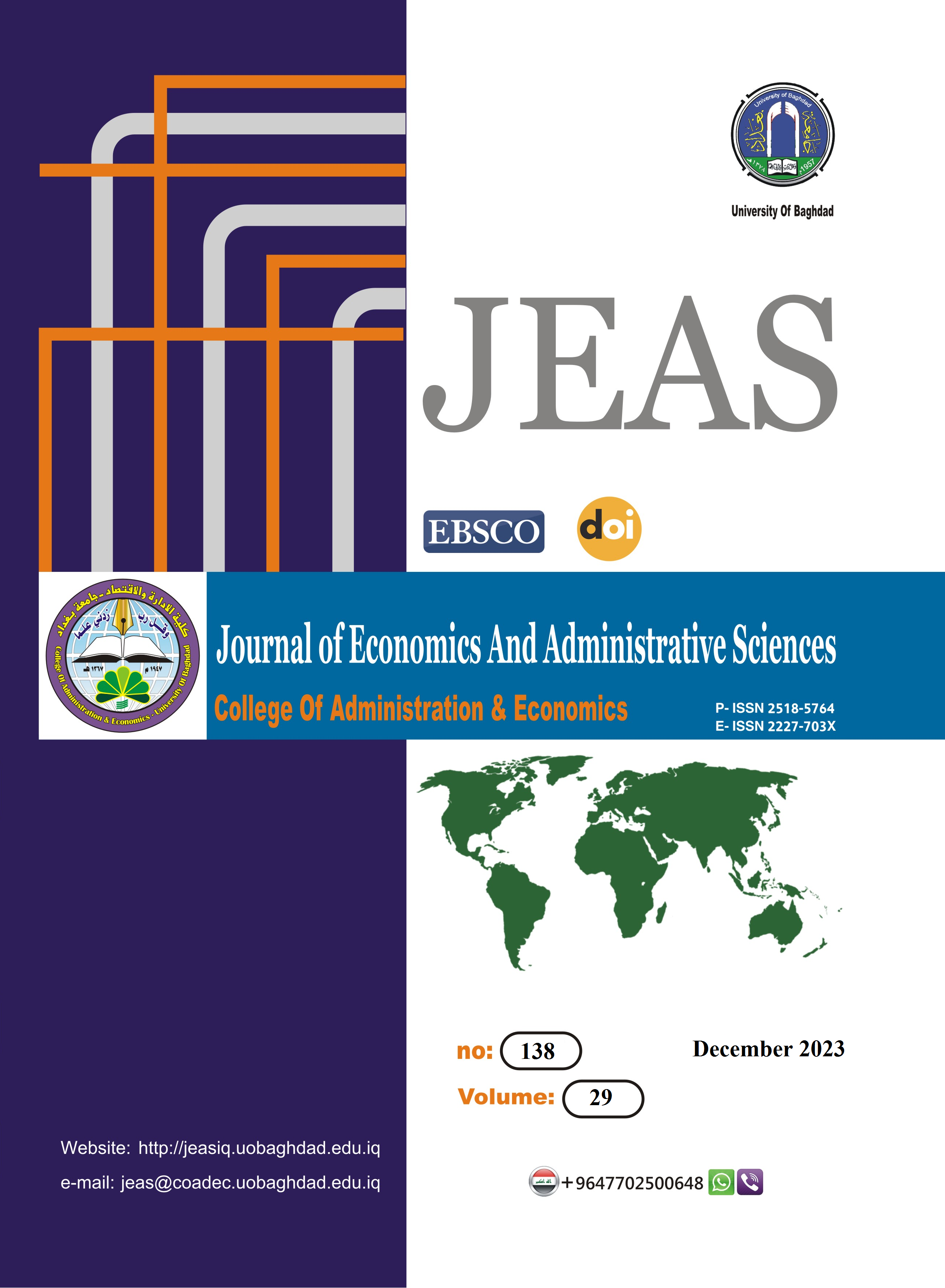Abstract
The current study aims to test the impact of green training and development on sustainable performance and explore its effects within and outside the Iraqi Ministry of Environment. The main research problem revolves around the question of the extent of implementing green training and development and sustainable performance in the ministry (What is the nature of the relationship between green training and development and sustainable performance in the ministry?). To clarify the relationship between the research variables, two main hypotheses were formulated along with sub-hypotheses. The study also aims to assess the level of the ministry's interest in the research variables and provide key recommendations to enhance sustainable performance through the adoption of green training and development. The descriptive-analytical method was employed in this study, where data was collected from a random sample of 250 individuals, but 150 questionnaires were collected. The researchers used a range of statistical methods using software such as Excel, SPSS V28, and Amos V25. The most significant results of the study indicate that sustainable environmental performance can be enhanced through a focus on training and the development of green environmental practices in general. Furthermore, a noticeable impact was observed for both variables (environmental training and development and sustainable performance), with prioritization and preference given to sustainable performance in practical implementation over training and environmental development. Based on the results, it is recommended to improve sustainable performance through the implementation of environmental training and development programs within the Ministry of Environment, while also focusing on research variables associated with sustainable performance.
Paper type: Research paper.
Paper type: Research paper.
Keywords
Green Training and Development
Sustainable P
Abstract
The current study aims to test the impact of green training and development on sustainable performance and explore its effects within and outside the Iraqi Ministry of Environment. The main research problem revolves around the question of the extent of implementing green training and development and sustainable performance in the ministry (What is the nature of the relationship between green training and development and sustainable performance in the ministry?). To clarify the relationship between the research variables, two main hypotheses were formulated along with sub-hypotheses. The study also aims to assess the level of the ministry's interest in the research variables and provide key recommendations to enhance sustainable performance through the adoption of green training and development. The descriptive-analytical method was employed in this study, where data was collected from a random sample of 250 individuals, but 150 questionnaires were collected. The researchers used a range of statistical methods using software such as Excel, SPSS V28, and Amos V25. The most significant results of the study indicate that sustainable environmental performance can be enhanced through a focus on training and the development of green environmental practices in general. Furthermore, a noticeable impact was observed for both variables (environmental training and development and sustainable performance), with prioritization and preference given to sustainable performance in practical implementation over training and environmental development. Based on the results, it is recommended to improve sustainable performance through the implementation of environmental training and development programs within the Ministry of Environment, while also focusing on research variables associated with sustainable performance.
Paper type: Research paper.
Paper type: Research paper.
Keywords
Green Training and Development
Sustainable P
